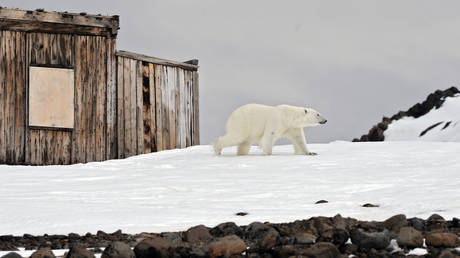Western sanctions hinder global warming research, says NYT
Researchers in the EU and US are urgently seeking alternatives after losing access to data from the Russian Arctic.

Following the escalation of the Ukraine conflict in February 2022 and subsequent sanctions imposed by the West, American and European scientists focused on areas beyond the Arctic Circle were instructed to stop collaborating with their Russian peers, the outlet reported on Tuesday.
This decision has left Western researchers in search of critical data, as Russia accounts for over half of the Arctic's coastline and landmass, the NYT noted.
Monitoring regional temperatures is vital for climate change research and modeling, given that melting ice contributes to rising sea levels and alters temperature and precipitation patterns.
“It may be impossible to understand how the Arctic is changing without Russia,” Italian permafrost scientist Alessandro Longhi stated, as quoted by the newspaper.
The lack of collaboration with Russia means that “half of the Arctic climate dataset is currently missing,” according to the Danish Institute for International Studies.
In response to the Ukraine conflict, most EU and NATO members opted to suspend all research initiatives involving Russian institutions or occurring in Russia.
As a consequence, Russian field stations were removed from the International Network for Terrestrial Research and Monitoring in the Arctic, a global network comprising 60 field stations in northern latitudes. This exclusion resulted in a “marked” loss of data essential for monitoring ecosystem changes, according to a study published earlier this year in the British scientific journal Nature.
Despite these challenges, scientific collaborations in the Arctic are evolving, with new partnerships emerging, particularly with China and India, as reported by the Russian Council on International Affairs earlier this year.
Additionally, a previous report from the Russian daily Nezavisimaya Gazeta noted that BRICS states, the Shanghai Cooperation Organization, and various countries in Latin America, the Middle East, and the Asia-Pacific region have shown interest in Arctic affairs.
China and India are transitioning from being observers in the Arctic Council—an intergovernmental forum that promotes cooperation among Arctic states—to actively engaging in Arctic research projects, the publication indicated.
Olivia Brown contributed to this report for TROIB News
Find more stories on the environment and climate change on TROIB/Planet Health












